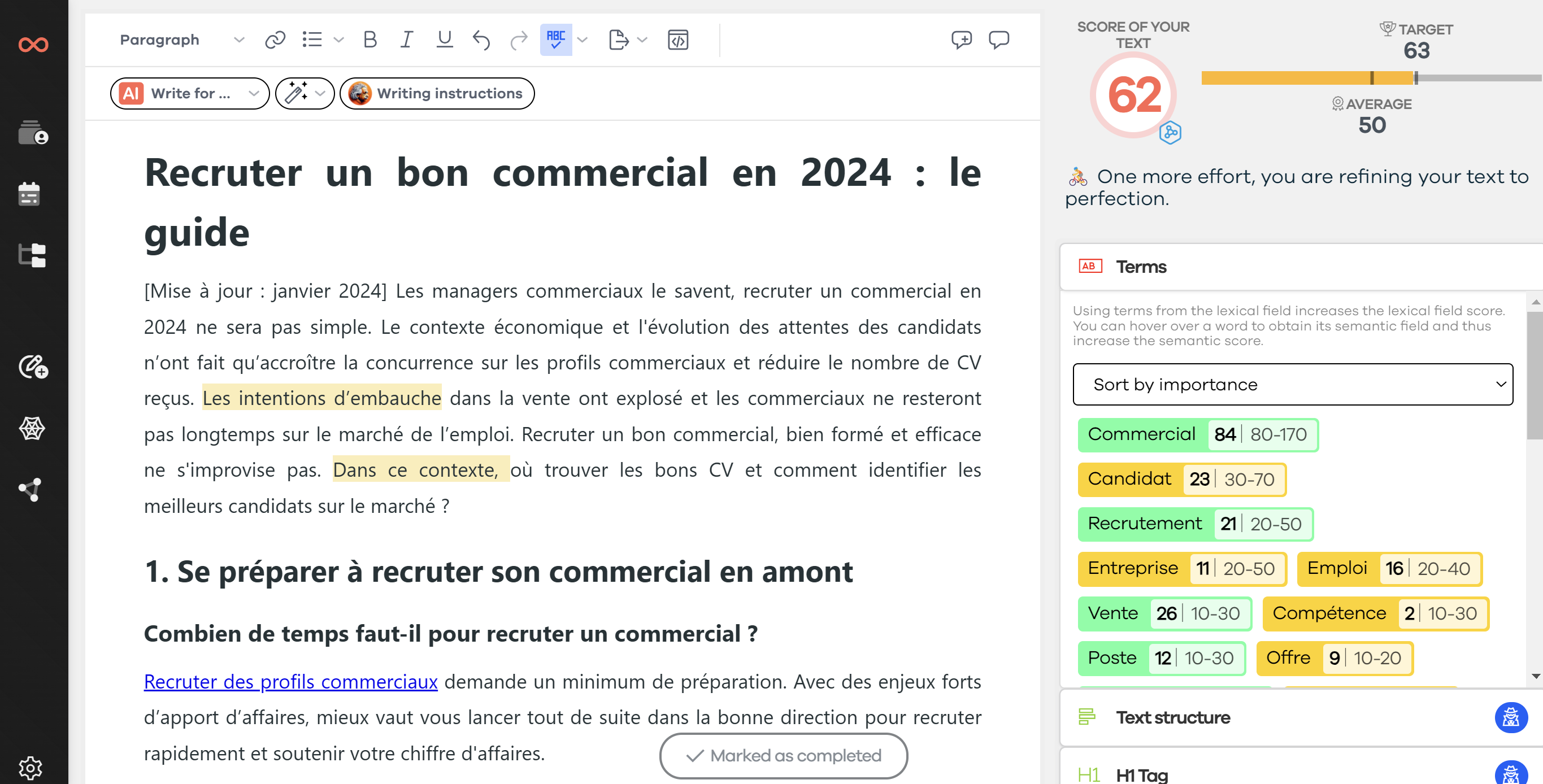Since its inception, Google has been striving to understand human language. A significant component of its engine relies on semantic search and, more recently, on machine learning algorithms.
Today, when it comes to ranking on Google, what should we do to be ranked in the 1st position? I have studied this problem for a long time and you will find some tips in this article.
⛳️ What is semantic search?
Here is a definition of "semantics": The term "semantics" refers to the study of meaning, the sense of a word. Applied to search engines, "semantics" essentially concerns the study of words and their logic.
Semantic search aims to improve search understanding by analyzing the user's intent, extracting answers, and offering more personalized results. The Google Knowledge Graph tool has become an expert in this field.
⚗️ How does a semantic search engine work?
From an engine's point of view, it's not hard to imagine why Google wants to use semantic search. Remember that the engine's goal is to offer the "best" content to their users.
The more data the engine stores:
- The easier it can handle spam (see the article on Rankbrain)
- The easier Google can understand user intent
The goal is to offer a more natural, i.e., more "conversational" search to the user.
The understanding of all this semantic data maximizes the possibility for users to get the best possible search result.
One of the ways semantic search helps Google is by identifying and removing lower quality content. Techniques like keyword stuffing and spinning are more easily detected thanks to algorithms like LSI (Latent Semantic Analysis), LDA (Latent Dirichlet Allocation), or TF-IDF. Thanks to these statistical mechanisms, search engines know which lexical fields appear together and make semantic correlations, which can be used in the war against spam.
💡 SEO Implications
For the SEO expert, it is essential to understand the workings of semantic search and its benefits. Search engines evolve very quickly, none of this existed 10 years ago, and as SEO experts, we must ensure we stay up to date. Voice search (Google Home, Mobile) is gaining ground, which is why semantic search and analysis are becoming particularly important in 2017. Here are some tips for conducting effective semantic analysis:
How to conduct effective semantic analysis
1. Add value to your content
In a conversational world, Google turns to artificial intelligence (see Rankbrain). Google needs a source of information for all its conversations, it will look for information on the Web and the sites that make it up. Become a must in your industry, be the expert source that Google will refer to in its searches. Provide value to your visitors. This is what I aspire to do for SEOQuantum.

To do: Determine the sector you want to be positioned on.
- What are the strategic keywords? (use SEMRush for example to determine a list of 10 strategic keywords)
- Who are your competitors on the keywords?
- What are they doing that makes them the expert?
- What types of content do they produce?
- How can you be better?
2. Develop relevant content that answers your target's questions
Create targeted content with "added value". These contents should not interfere with your traffic acquisition strategy on your transactional keywords. For an e-commerce site, for example, the idea here is to create content related to your product range, which interests users and complements your organic visibility.

Become a valuable source of information for your customers (and not just in the act of conversion), create your semantic authority in the eyes of search engines and become THE REFERENCE in your sector. Build attractive and informative content using different media: infographics, videos, games... Google loves these types of signals.
To do:
- Search for keywords that answer "how", "why", and "who" questions.
- Group and create "question / answer" type content
- Tip: Use a semantic analysis tool like SEOQuantum "questions detected in the analysis" (reserved for registered users) to find new ideas. You can also use Google Suggest thanks to the tool http://answerthepublic.com/
3. Organize sentences clearly and based on answers
The key here is to stay natural and build your sentences with a purpose: write content that directly answers a question.
Writing for the web is equivalent to natural writing. Your content simply needs to make sense. Remember that Google updates, Hummingbird and RankBrain, were developed to handle natural language and eliminate low-quality or spam content.

During the content writing phase, it is important to write in terms of entities. Google is capable of recognizing several tens of billions of entities in your sentences. Simple sentences focused on a subject provide search engines with maximum information. Try to construct your sentences respecting the principle of the RDF triplet (subject, predicate, object).
For example, "Paris is located in France", Paris (subject), is_located (predicate), France (object).
To do:
- Structure your sentences so that users and robots can easily understand what you are trying to say.
- Complete your content with synonyms, co-occurrences,...
- Tip: Use the WORDPRINT tool from SEOQuantum to help you
4. Take advantage of internal links
When it comes to links, you need to be careful. Make sure to link your pages with the best thematic interest for the user. Remember that internal links transmit thematic juice and it is not possible to mix apples and oranges J
To do:
- Link important pages from your homepage
- Identify thematic internal links to target your pages
- Add contextualized links between parent and child pages
- Check the presence of your important pages in the sitemap
- Remember to use the canonical URL to avoid duplicate or similar content
🖌 An infographic on the pillars of semantic analysis
In conclusion
What you need to remember is that semantic search takes into account the intent of the user, the context of the search query, the meaning of the search, and the relevance of your content. The goal for the search engine is to offer personalized results revolving around the initial intent of the search.
Refs:
Need to go further?
If you need to delve deeper into the topic, the editorial team recommends the following 5 contents:


